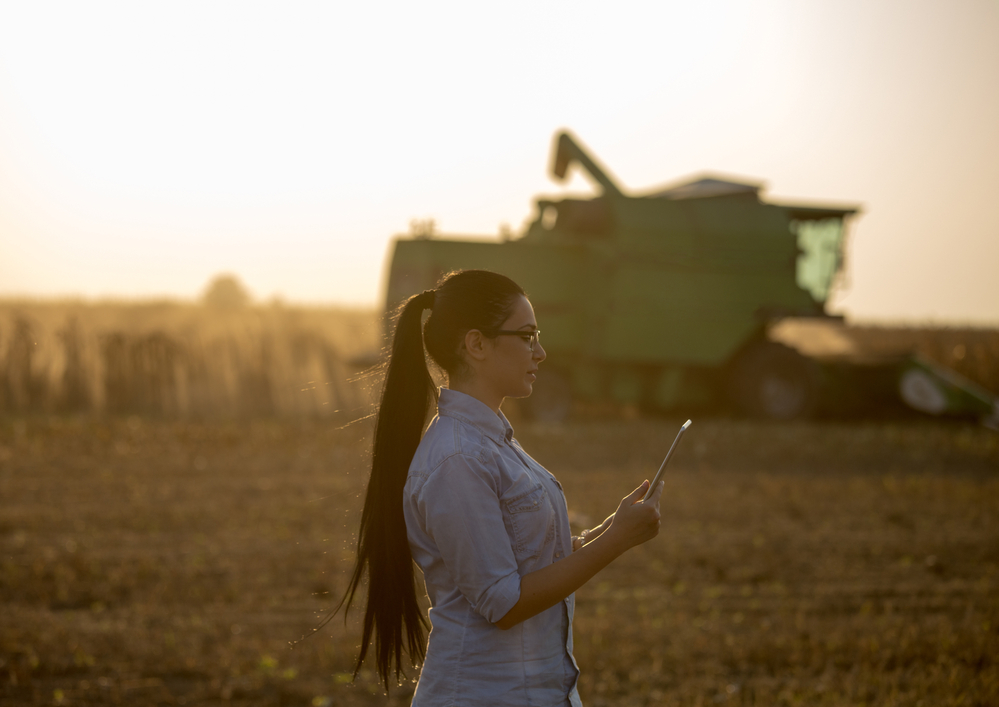For three days, leading global authorities on the bioeconomy are meeting virtually for the 2020 International Conference on Applied Bioeconomy, which is the 24th edition of this event.

San Jose, 14 October 2020 (IICA). This year’s edition came to the region through the Ministry of Agriculture, Livestock and Fisheries of Argentina and the Inter-American Institute for Cooperation on Agriculture (IICA), which co-organized the event with the International Consortium on Applied Bioeconomy Research (IACBR).
The Conference was divided into five plenary sessions. The first session entitled “Policies for Bioeconomy Growth as Part of COVID-19 Recovery in the Americas” featured Federico Torres Carballo, Vice Minister of Science, Technology and Telecommunications of Costa Rica; Wálter Oyhantcabal and Carolina Balian from the Sustainability and Climate Change Unit of the Ministry of Livestock, Agriculture and Fisheries (MGAP) of Uruguay; Marcelo Eduardo Alós, Secretary of Food, Bioeconomy and Rural Development of the Ministry of Agriculture, Livestock and Fisheries of Argentina; Mabel Gisela Torres Torres, Minister of Science, Technology and Innovation of Colombia; and Bruno Prosdocimi Nunes, General Bioeconomy Coordinator of the Ministry of Science, Technology and Innovation of Brazil.
Panelists for the second plenary session, “Climate Change, Environment and the Bioeconomy Post-COVID-19”, were Gabriel Blanco, Professor at Unicen in Argentina and co-author in Working Group III of the IPCC’s Fifth and Sixth Assessment Reports; Hans van Meijl, Economist at the Wageningen Economic Research Institute and Professor of Macroeconomic Assessment of the Circular Bioeconomy at the University of Wageningen in the Netherlands; Anthony Artuso, Academic at the Center for Economic Policy Studies, University of Virginia; and María Michela Morese, Executive Secretary of the Global Bioenergy Partnership (GBEP) at the Food and Agriculture Organization (FAO) of the United Nations.
Candice Wilson, Manager of Ethanol Trade Policy, U.S. Grains Council; Suani Teixeira Coelho, Coordinator of the Research Group on Bioenergy (GBIO), IEE USP; Luis Zubizarreta, President of the Argentinian Chamber of Biofuels (CARBIO); and Patrick Adam, Executive Director of the Corn Bioethanol Chamber of Argentina were the presenters of Plenary III, speaking on “The Role of Bioenergy Post COVID-19″.
Plenary IV, which addressed “The New Biological Inputs: Experiences in the Management and Development of Bioinputs”, included presentations by German Ceizel Borella, Coordinator of the Advisory Committee on Bioinputs for Agricultural Use (CABUA), Argentina; Roberto Rapela, President of the Academic Center of Biological Sciences (CABIO); Ricardo Yapur, President of Rizobacter; and Fabiola Moreno Martínez, Coordinator of the Registry of Bioinputs for Agricultural Use of the Colombian Institute of Agriculture (ICA).
The final plenary of the conference on “Bioeconomy for Economic Recovery Post COVID-19”, was presented by David Zilberman, Professor of the University of California, Berkeley; Ariel Coremberg, Director of the Productivity Studies Center and Professor at the University of Buenos Aires, Argentina; Eduardo Trigo, Consultant to the Bioeconomy Program at IICA and Professor at the Agroindustry Center of Austral University, Argentina; Roberto Bisang, Professor at the University of Buenos Aires, Argentina; Rubén Echeverría, Director GeneralEmeritus of the Alliance of Bioversity International and the International Center for Tropical Agriculture (CIAT); and Máximo Torero, Economist at the Food and Agriculture Organization (FAO) of the United Nations.
Other participants were Hugo Chavarría, Manager of IICA’s Bioeconomy and Production Development Program; Agustín Torroba, International Biofuel Specialist at IICA; and Kelly Witkowsky, Manager of the Climate Change and Natural Resources Program of the Institute.
More information:
Institutional Communication Division
comunicacion.institucional@iica.int











